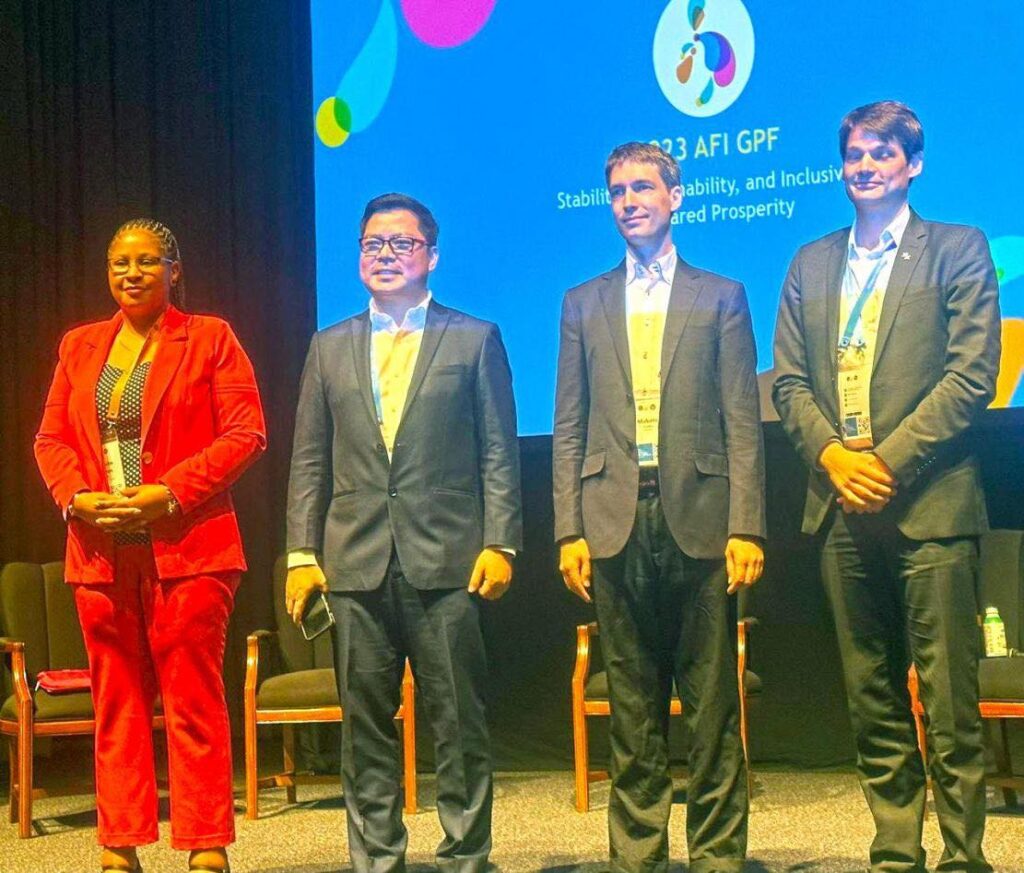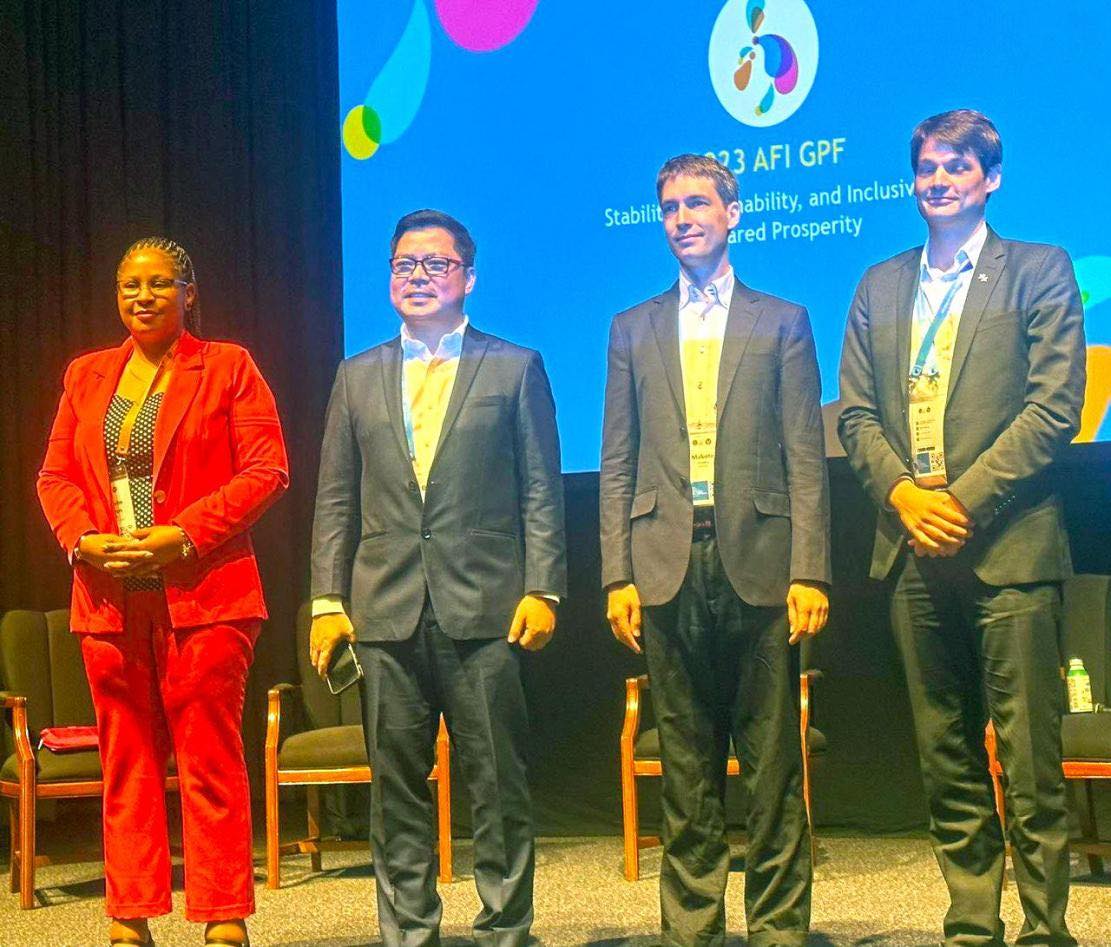By Daily Tribune

Rizal Commercial and Banking Corporation’s executive vice president and Chief Innovation and Inclusion officer Lito Villanueva put into spotlight the Philippines’ financial inclusion gains in the 2023 Alliance for Financial Inclusion Global Policy Forum hosted by the Bangko Sentral ng Pilipinas.
The AFI is a global network of 85-member institutions from 76 countries composed of central banks and financial regulators working together to promote financial inclusion.
More than 800 participants which include executives of central banks, financial institutions, and partner institutions around the globe graced the event with the theme “Stability, Sustainability, and Inclusivity for Shared Prosperity.”
Joining Villanueva in the panel discussion were Nomcebo Hadebe, CEO, Center for Financial Inclusion, Eswatini; Makoto Takemiya, co-founder and CEO of Soramitsu; and Paul Weber, Head of Unit, Inclusive and Innovative Finance Luxembourg Ministry of Foreign and European Affairs.
The RCBC executive forecasted that the Philippines is right on track and on full-speed to becoming a fully digitized nation, citing data from the Fintech Alliance’s Philippine Report 2023 about the exponential growth of digital infrastructure and the financial services sector.
“The Philippines is seeing substantial growth in banking and connectivity. From 2022, we’ve already seen a 9.2 percent increase in deposit accounts, smartphones have penetrated 84.9 percent of the population, and we have 84.75 million Internet users and counting. Nearly half of retail payments are now digital,” said Villanueva.
Villanueva also championed the financial inclusion efforts of the leading digital challenger bank to onboard unbanked and underserved Filipinos which include the country’s first phygital banking solution — RCBC Moneybela Barangayan Banking.
Under RCBC Moneybela, RCBC’s digital innovations RCBC Pulz (formerly RCBC Digital), RCBC DiskarTech, and RCBC ATMGo are complemented with financial and digital literacy engagements to increase bank membership and encourage use of banking services in rural and remote areas.
At the heart of the campaign is RCBC ATM Go, the country’s largest bank-agnostic and grassroots-oriented ATM network that has 100 percent coverage in all 82 provinces in the country.
Villanueva emphasized the role of RCBC in being the only bank offering services to the geographically isolated and disadvantaged areas of the Bangsamoro Autonomous Region of Muslim Mindanao.
Residents patronized RCBC ATM Go for managing their accounts and withdrawing benefits from the Pantawid Pamilyang Pilipino Program of the Department of Social Welfare and Development.
“The future of inclusive fintech lies in our continuous effort to redefine banking as we know it. In our industry, change is good. Change fuels us. We are leveraging technology for the greater good, in order to provide better and equal access to financial services for all,” Villanueva said.
RCBC’s digital transformation has fueled its massive leap from 8th position in 2018 to 5th position 2022 in the list of the country’s largest privately-owned banks in terms of assets.
Recently, the leading digital challenger bank clinched its fourth consecutive win as ‘Best Bank for Digital’ from the prestigious Asiamoney.
The bank’s Moneybela Barangayan campaign was also recognized by The Asian Banker as ‘Best Financial Inclusion Initiative’ for scaling projects that provide digital and financial literacy and access to banking services to rural and remote areas covering all 100 percent of the provinces nationwide.
AFI’s 2024 inclusive fintech showcase was also announced which showcases the world’s most promising FinTech and RegTech innovators that are enhancing access to and the usage and quality of formal financial services for low-income populations in developing countries and emerging markets.
Among the themes for next year’s search include enhancing interoperability and cost reduction in digital payments, boosting digital financial literacy and financial health for disadvantaged groups, catalyzing access to finance for women and youth entrepreneurs, leveraging data management and analytics for financial inclusion impact, and strengthening resilience and adaptation for climate vulnerable populations.
See full post here.

